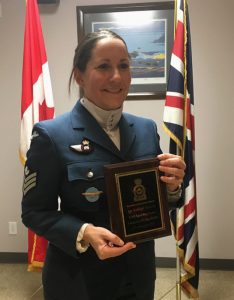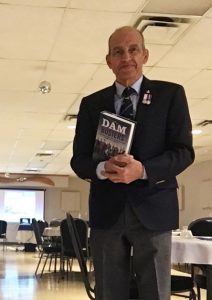
We rarely saw her. But we always saw her handiwork. She came to work at the college where I taught after we’d all left for the day. And when we arrived the next day to resume our tutorials, labs or classroom sessions with students, all those rooms were spick-and-span. Then, one evening when I happened to be working late, I met her – a member of Centennial College’s custodial staff – and I stopped to chat.
“Thanks for all the cleaning you do in our classrooms,” I said.
“You’re welcome,” she said. “Just part of the job.”
“But we never see you. It’s nice to acknowledge what you do.”
“Yes, well, we’re kind of invisible,” she said.
I thought about this very dedicated custodial worker several times this past week. As I mentioned in last week’s Barris Beat, I recently visited the Toronto Street Medical Centre for a doctor’s appointment. As I checked in at the reception desk, I chatted with Hazel, who has worked with the doctors in that clinic for many years. I happened to mention that I’d wanted to make an appointment for my annual flu shot. Hazel said she’d just picked up their latest supply that morning, so I could get my shot right away.
Much like the custodial worker I’d known at the college, Hazel and her co-workers at the doctor’s office don’t make a fuss about helping patients; they just do it – almost imperceptibly – because they are professionals and believe totally in the objectives of public service.
In a Maclean’s magazine story from a few years ago, I remember reading about people who worked in skilled jobs sharing a kind of inverse relationship between work and recognition. The story quotes David Zweig, a former fact-checker for Vogue magazine in New York. After years and years of correcting other writers’ mistakes so that the final Vogue stories read accurately and flawlessly, Zweig realized how invisible he was.
“You never read a magazine article and say, ‘Man, that was fact-checked beautifully,” Zweig told a Maclean’s writer. “I realized that the better I did my job, the more I disappeared.”
Strange, to feel lost and forgotten by doing one’s job well. Particularly so, in a time when many medical professionals and health-care civil servants have worked so hard over the past two years fighting the COVID-19 pandemic. They must feel the same way.
By serving inside hospital ICUs or inside locked-down elder-care facilities – where quarantine has limited the flow of information – thousands of doctors, nurses, orderlies, community support workers and military personnel have worked in virtual isolation, almost invisibly saving lives.
By coincidence, another dimension of invisible work came up during a Royal Canadian Air Force Association banquet I attended last Saturday night in Trenton. For the first time since the pandemic began, RCAF No. 413 Squadron staged its annual awards night at the Wing facility just outside Canadian Forces Base Trenton.

I was the keynote speaker and as proceedings began I met the Air Force NCO who was being recognized that evening as “Air Force Person of the Year.” Sgt. Ashleigh Tucesku serves in finance at the Trenton base, or as she described it, “working pretty much under the radar.”
However, one of her jobs (we learned) was co-ordinating Operation Boxtop, the resupply of Canada’s most northerly base of operations at Alert, on Ellesmere Island, just 800 kilometres from the North Pole. For two years, Sgt. Tucesku had organized the twice annual flights of Hercules and Globemaster transport aircraft bringing fuel and thousands of pounds of dry goods each spring and fall to Alert.
“We have never seen such a high level of coordination … of Boxtop,” the task force commander reported in the citation. All thanks to Sgt. Tucesku working under the radar.
By coincidence – as the subject of the evening’s keynote – I’d chosen to speak about the 30 Canadians who’d participated in the famous Dam Busters raid in May 1943. As part of the nighttime bombing attack against the hydroelectric dams (used by Germany to power weapons production on the River Ruhr during the Second World War) the No. 617 Squadron Lancaster bombers had used an unheard of low-level bombing run.
They’d flown from their British base in Lincolnshire all the way to the heart of Nazi Germany and back at treetop level, or as I suggested “flying under the radar,” to accomplish their mission. As I got to that point in my talk, I noted that like her predecessors, Sgt. Tucesku had worked the same way – invisibly but effectively – to get the job done.
I felt remarkably privileged to witness recognition of a servicewoman who, until last Saturday night, had gone above and beyond the call largely unnoticed.
We need to recognize more deserving Invisibles.